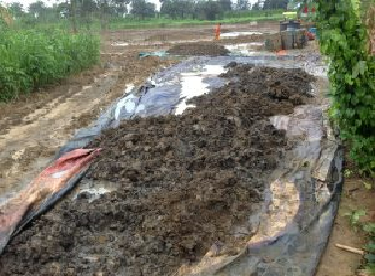

Due to difficulties associated with the management of waste from its removal, transport and treatment to final disposal. Waste management is a key factor in oil and gas operations hence waste needs to be managed from cradle to grave.
ENJ PROJECTS is positioned to provide the required services in waste management in line with internationally acceptable best practices and compliance with local and International environmental regulations. We have technical and resource expert capabilities as well as requisite experience to manage oil industry wastes effectively from cradle to grave. ENJ PROJECTS provides systematic approach for pro-active waste management practices in oil and gas production with a view to reduce or eliminate potential environmental impacts. At ENJ PROJECTS, we follow good waste management principles which serves as guide for different activities. We ensure safety at every stage of waste handling, from collection, sorting and loading, transportation, storage, treatment, and final disposal.
Treatment Method
Our waste treatment facility is designed with temporary storage areas. ENJ PROJECTS Global Resources Limited is well equipped to apply different waste treatment methods.
Thermal Desorption
Thermal Desorption Unit (TDU) is an indirectly heated rotary drum, which is operated in a parallel flow configuration. The burner flame and exhaust gases do not come into contact with the contaminated material. The drum rotates within an insulated chamber, which can be heated by combination fuel burners capable of burning natural gas, fuel oil, syngas, or propane.
As the drum rotates, the surface of the contaminated material exposed to the metal surface is continuously renewed which facilitates the transfer of heat from the heated chamber through the drum to the material. The material is heated to a sufficient temperature to volatilize the contaminants. This is achieved under anaerobic conditions thereby preventing oxidation of the hydrocarbons. Gases and water produced throughout the process are treated to remove remaining hydrocarbons.
The process described above is explosion proof and is delivered and operated as a complete system with control room. The system operates at a maximum temperature of 450°C but generally 380°C is sufficient for treatment purposes. The system essentially removes all oil from solids and water.
Incineration
Incineration is a waste treatment process that involves the combustion of organic substances contained in waste materials. Incineration and other high-temperature waste treatment systems are described as “thermal treatment”. Incineration of waste materials converts the waste into ash, flue gas, and heat.








